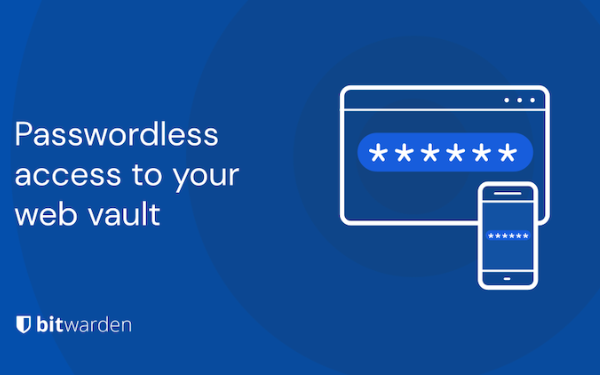Bitwarden, an open source password manager, has announced that it has acquired Passwordless.dev, an API that implements the modern FIDO2 WebAuthn standards.
The agreement is a public declaration of Bitwarden’s plan to upgrade its service to be more compatible with passwordless authentication methods, such as passkeys, which are a key offering that Passwordless.dev enables developers produce for websites and services.
Web Authentication, or WebAuthn, is the standard being adopted by IT giants like Microsoft, Google, and Apple to facilitate password-free user accounts.
Put simply, “easier to use for everyone.”
With the help of the recently raised $100 million, the purchase “enables Bitwarden to provide clients with a solid WebAuthn platform from which to create unique features and deliver world-class passwordless user experiences.”
Also, Passwordless.dev is open source, so it can be easily integrated with developers’ systems and is WebAuthn compatible with minimum scripting.
The CEO of Bitwarden, Michael Crandell, has remarked that “Passwordless.dev allows developers and enterprises accelerate passwordless innovation by streamlining development tasks into a single API.”
According to Anders berg, creator of Passwordless.dev, “in this race towards safe online experiences with the capacity of FIDO2 to block common attack vectors, Bitwarden and Passwordless.dev will make passwordless more accessible to everyone.”
As part of the FIDO2 standards, the Web Authentication API (WebAuthn) was created by the FIDO Alliance and the World Wide Web Consortium (W3C).
It enables users to verify their identities by means of a biometric authentication method, such as fingerprint or face recognition, or a personal identification number (PIN) from one of their smart devices. In this case, a password is not necessary.
If your gadget doesn’t have fingerprint or facial recognition software, you may always utilise an external security key with a USB reader.
Passkeys are used instead of passwords. There will be two types of keys associated with each account: public and private. The first kind of data will be encrypted and kept on servers, while the second type will be saved only on the user’s chosen device. Therefore, FIDO asserts that passkeys are far more secure and resistant to phishing.

Subtly charming pop culture geek. Amateur analyst. Freelance tv buff. Coffee lover
